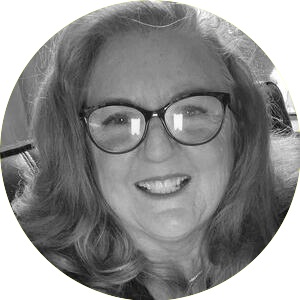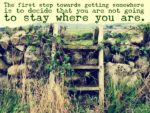Last updated on January 2nd, 2020 at 12:07 am
 There is a term in career jargon called, “portfolio career” used to describe people who juggle more than one job at a time–not necessarily for the financial considerations that you might think, but because they have the interest to learn, or participate in, something greater than themselves.
There is a term in career jargon called, “portfolio career” used to describe people who juggle more than one job at a time–not necessarily for the financial considerations that you might think, but because they have the interest to learn, or participate in, something greater than themselves.
An example of this would be the wine server, who pours wine on the weekends because he loves wine and wants to share his passion with tourists but spends his Monday – Friday working at a bank as a loan officer.
Or, there’s the programmer, who during the week buries herself in a computer, then works as a hostess on Friday and Saturday nights just for the opportunity to meet new people and help them have a memorable night out.
Or, the graphic designer is working for a large corporation where she’d like to be a creative director, yet spends her weekends at a local nursery because she’s addicted to helping people grow amazing roses.
Gone are the days where you could rely on one career to see you through your lifetime, and frankly, would you want to?
Think of reality TV chefs, who have held every job in the restaurant profession, who are also writers, world travelers, and food aficionados with TV shows. Do you think they wish they remained only a chef? Or a waiter? Or a bartender? Their lives keep moving forward because they are visionaries who look at their work as a “portfolio career.”
If you open yourself up to the possibility of being a “portfolio dreamer,” someone who works on their dream while experimenting with other lesser dreams, you might enjoy dream success beyond your wildest imagination. Still, you have to be a visionary.
And there’s one slight problem with being a visionary–there’s a lot of people out there in the world who might not get you or your vision.
When those around you don’t get what you are doing, or why you are even doing it, you can be perceived as “weird,” “out of touch,” or “one of those people.” You can end up either looking like Edison-the-brilliant, or Juan-Ponce-de-Leon-the-delusional. It depends on how your vision turns out. If you become the next Julia Child, it’s great. If you become Josh Duggar, then maybe, it’s not so great.
8WomenDream is a publication that grew out of a dining room into something read by thousands of people from all over the world. I’ve done so much work on the backside of this website that I could have built a bridge to Los Angeles from Northern California.
Okay, maybe that’s an exaggeration, but it sure feels that way.
But when the masses come to read what I have to say about dreaming big, are they thinking that I am the visionary, the “portfolio dreamer” that I see myself as, or am I “Catherine, the-delusional”? Does the fact that I am a “portfolio dreamer” make me a risk or a benefit to others who might pay me to do what I do here?
A visionary? Or a nut?
In her book, The Visionary Leader; How To Inspire Success From The Top Down, Susan Bagyura believes that being a visionary is the most critical factor to business success, and tapping into creativity helps you achieve goals. I hear this all the time, except it has often been my experience that although the world may say that people still look at me like I’m crazy to do what I do.
You’d think living so close to Silicon Valley, California, that everyone around me would get the “visionary thing.”
But instead…
“Are you still doing that online thing?”
“You mean, 8WomenDream?”
“Yeah.”
“What is that again, exactly?”
Even a guy I once dated said, “Dating you is like being the person who is going to be left at the station after the train to Paris has left. You are already on that train. I am still standing on the station platform, wondering what happened.”
I knew he meant that I was intended to do something more with my life, which meant that I was not for him. At the time, I thought he was the crazy one because I was involved in being a great mom to my son. When you love your child, and he’s still in school, your big visions are often only as big as your backyard. I didn’t have any more significant ideas beyond helping him do his homework and be a success in school.
But once that precious boy was in bed each night, I’d work on my mom blog and scan the Internet looking for answers on where I might make a difference in the world. When I finally put up the 8WomenDream website and invited seven interesting women to dream big with me, it felt right. It felt like it was possible to make a difference. I was that girl on a train heading out of town.
According to Donna Dunning of Dunning Personality Experts, visionaries are at their best when they can
- Work toward a long-term vision
- Have time alone to process connections and possibilities
- Think of new and different ways to interpret what is known
- Be challenged intellectually
- Question basic assumptions about what is known
- Work on complex problems
- Redefine questions or change the framework they are presented in
- See many different ways of looking at the same ideas
- Focus on lifelong learning
- Avoid routine work
- Learn about and create a theory
- Have in-depth, one-on-one conversations
- Find new applications for existing information
- Use metaphors, symbols, and other abstract figures of speech
- Be independent and self-motivated
- Take action and find ways to use their ideas
- Make models and solve complex problems
- Improve something or create something better in the world
- Use planning and organizing
- Reflect on their knowledge
I could have checked every one of these off with a “yes.” Yeah, like you don’t already get that about me. But what does it mean? Is it a guarantee that my dreams will come true? I honestly don’t know.
But I’ll leave you with this quote from Bill Hybels–
Visionary people face the same problems everyone else faces, but rather than get paralyzed by their problems, visionaries immediately commit themselves to find a solution.”
Catherine Hughes

Catherine Hughes is an accomplished magazine columnist, content creator, and published writer with a background as an award-winning mom blogger. She partners with companies to create captivating web content and social media stories and writes compelling human interest pieces for both small and large print publications. Her writing, which celebrates the resilience and achievements of Northern California’s residents, is featured in several magazines. Beyond her professional life, Catherine is passionate about motherhood, her son, close friendships, rugby, and her love for animals.
Note: Articles by Catherine may contain affiliate links and may be compensated if you make a purchase after clicking on an affiliate link.




